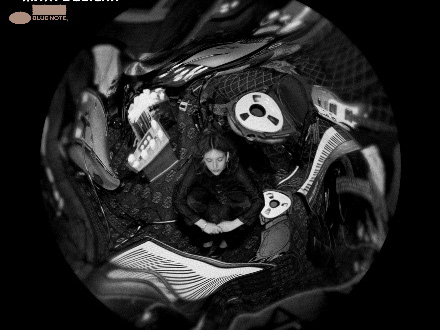MAR 07
LIVINGSTON ON STORYTELLING, EMOTION & MUSIC AS AN ESCAPE
BY LUNA CARDOSO
Born in Denton, Texas, Livingston has long used music as both self-expression and escape. Drawn to songwriting from childhood, he crafted deeply personal lyrics that reflected his inner world. Over time, his sound evolved into a mix of raw storytelling and polished pop production, forging a deep emotional connection with listeners. His breakout moment came with Shadow, a track that resonated widely, topping the iTunes Global Song chart and breaking into Spotify’s US and Global Viral Charts. In 2024, he reached new heights with his debut album, A Hometown Odyssey, which quickly gained momentum, pulling in over a million streams per day. Now, he’s expanding on that journey with A Hometown Odyssey (The Story Continues), a new chapter in his musical evolution featuring tracks like Glow, Look Mom I Can Fly, and Gravedigger.
At a recent press conference hosted by °1824, rising artist Livingston shared insights into his songwriting process, the emotional depth behind his music, and how he hopes his songs resonate with listeners.
He spoke about the delicate balance between personal storytelling and creating music that connects with a wide audience. Sometimes, he explained, storytelling is about capturing an emotion—whether from childhood or the present—and processing it on paper. But just as important is shaping that story into something musically resonant, using melodies and production inspired by his influences. His approach goes beyond storytelling; he crafts an immersive soundscape that deepens the emotional impact of his lyrics.
For Livingston, it’s about respecting an idea when it arrives—truly understanding its core message and determining how best to serve its emotional weight. If a song is meant to exist, it will, but the challenge lies in crafting a full world around it with the right production and vocal choices. For Nightlight, he wanted to capture the innocence of discovering music and love. To achieve this, he used childhood-evoking sounds—clinking bells, toy-like rattles—creating a playful yet nostalgic feel. These weren’t just production choices; they reinforced the song’s emotional core, making it both intimate and universally relatable.
Livingston also reflected on how music serves as an escape from anxiety. He described songwriting as a kind of magic prism—taking emotions and thoughts that are difficult to express and transforming them into something tangible and clear. Just as poets, artists, and painters use their mediums to articulate the inexpressible, he sees songwriting as a way to bring order to emotional chaos. Sometimes, even the simplest songs can reveal truths he didn’t realise he needed to say.
For Livingston, music is more than an escape—it’s a way to bring order to emotional chaos, transforming overwhelming feelings into something meaningful. By embedding his own emotions into his songs, he offers listeners a sense of clarity and connection, reminding them that even the heaviest feelings can be distilled into something beautiful. In a world where emotions often feel too overwhelming to process, his music proves that storytelling has the power to distill chaos into something beautiful—and that sometimes, the simplest songs carry the deepest truths.
Listen to Livingston’s new album, out now, and experience the next chapter in his journey.









